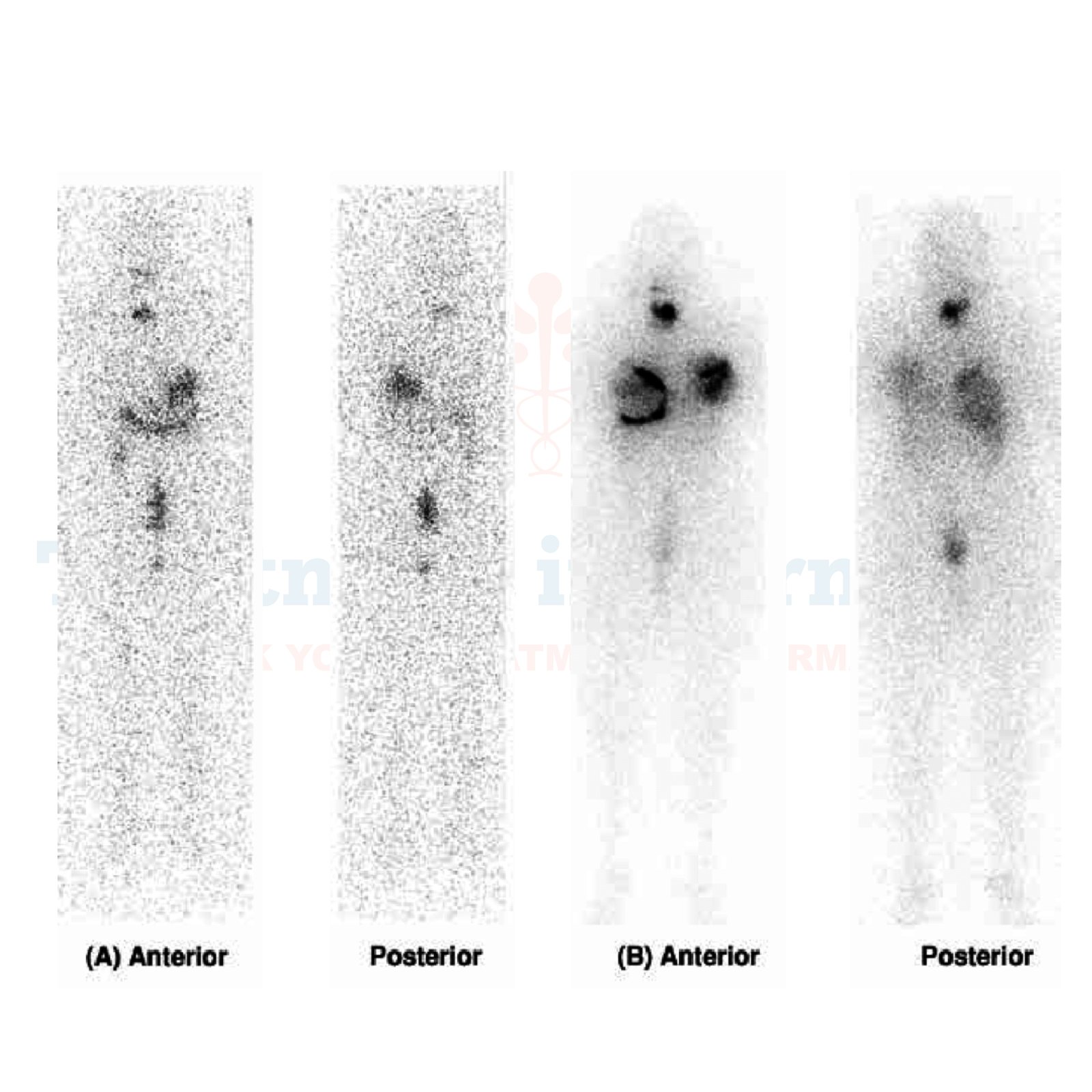Iodine-131 (I-131) Therapy, Thyroid Cancer and Hyperthyroidism Treatment in Germany
Germany is renowned for its advanced healthcare system and state-of-the-art medical facilities, making it a top destination for Iodine-131 therapy. With highly skilled endocrinologists and nuclear medicine specialists, patients receive personalized care tailored to their specific condition.
Germany's strict medical regulations and cutting-edge technology ensure the highest standards of safety and efficacy, providing patients with confidence in their treatment. Furthermore, the country excels in integrating research and clinical practice, allowing access to the latest advancements in thyroid treatment.
What is Iodine-131 Therapy?
Iodine-131 (I-131) therapy is a specialized nuclear medicine treatment designed to target thyroid-related conditions by using a small dose of radioactive iodine. The radiation in I-131 specifically targets thyroid cells, making it a focused and minimally invasive choice for patients.
This therapy is effective in:
- Treating hyperthyroidism (overactive thyroid).
- Managing and reducing certain forms of thyroid cancer.
- Diagnosis for Iodine-131 (I-131) Therapy
Your path to I-131 therapy begins with a precise diagnosis. It’s crucial to undergo a comprehensive evaluation, which may include:
- Blood tests for thyroid hormone levels.
Imaging tests to examine the thyroid gland.
- A thorough consultation with a thyroid specialist.
Benefits of Iodine-131 (I-131) Therapy
This therapy offers multiple advantages for patients with thyroid conditions, including:
- Targeted Treatment: The radioactive iodine is selectively absorbed by thyroid cells, minimizing exposure to other tissues.
- Non-Invasive Solution: Unlike surgery, I-131 therapy is a non-invasive procedure that eliminates the need for extensive surgical recovery.
- Long-Term Results: This therapy can provide lasting control of hyperthyroidism or effective treatment for thyroid cancer.
- Available Treatment in Germany: Germany offers state-of-the-art facilities for I-131 therapy, ensuring you receive world-class care and expertise.
What Are the Potential Side Effects?
Like all treatments, Iodine-131 therapy may have some side effects. Your doctor will discuss these potential effects and provide guidance to ensure a safe and smooth treatment experience.
- Neck Tenderness: Temporary neck soreness or swelling.
- Dry mouth: Due to reduced production of saliva, dry mouth or temporary changes in taste can occur.
- Nausea or Vomiting: In rare cases patients experience Nausea or Vomiting after therapy.
How Does Iodine-131 (I-131) Therapy Work?
Here’s a simple breakdown of the I-131 treatment process:
- Consultation and Evaluation: Your healthcare provider will confirm that I-131 therapy is the right choice based on your condition and diagnostic tests.
- Personalized Dose Administration: You’ll receive a measured dose of I-131, often in a small capsule or liquid form, targeting your thyroid gland.
- Monitoring and Recovery: The therapy begins working immediately, with radiation targeting and destroying affected thyroid cells over weeks or months. Follow-up appointments will track your recovery and progress.
Why Choose Treatment in Germany for Iodine-131 (I-131) Therapy?
- Cutting-Edge Medical Technology: Germany is renowned for its advanced healthcare facilities equipped with the latest diagnostic and therapeutic technology, ensuring precise and effective treatment.
- Highly Experienced Specialists: German medical professionals are internationally recognized for their expertise and extensive experience in I-131 therapy for thyroid conditions.
- Personalized Treatment Plans: Patients benefit from individualized care tailored to their specific diagnosis, lifestyle, and overall health.
- Comprehensive Support Services: Hospitals and clinics in Germany offer holistic support, such as multilingual staff, patient coordinators, and assistance with travel logistics.
- Focus on Safety and Innovation: Strict regulations and a culture of research and innovation ensure patient safety and the use of the most up-to-date treatment methods.
Conclusion
Thyroid disorders can disrupt various aspects of life, but with the right treatment, recovery and improved health are within reach. Germany’s exceptional medical infrastructure, dedication to safety, and pioneering technologies position it as a leading destination for effective thyroid therapy. Take the first step toward better health with Iodine-131 (I-131) therapy. Experience expert care and effective treatment in Germany, designed to bring relief and lasting thyroid management.
👉 Contact us for further information and receive a complimentary consultation.


.webp)
 (1).webp)

.webp)
 (1).webp)


.webp)
 (1).webp)

.webp)
 (1).webp)
